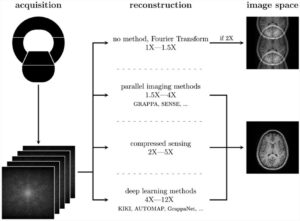This week in artificial intelligence (AI) news, we take a look at facial recognition technology being used to monitor citizens and whether or not they are following best health practices during the COVID-19 pandemic, the potential of robotics and AI to help save the disappearing coral reefs, and an augmented/virtual reality app to help solve the loneliness crisis.
In the wake of the COVID-19, some countries and regions that are being hit harder by the pandemic are taking more drastic measures. One area that is under the magnifying glass regarding slowing the spread of COVID-19 is public transportation. The Metropolitan Transit Authority (MTA) of New York City is exploring the idea of using artificial intelligence tools in order to track subway riders to see how many are keeping safe by wearing masks and following public health best practices. The pandemic has been especially harsh on New York City residents with around 213,000 confirmed cases of the coronavirus and nearly 18,000 deaths. The goal of this initiative is to get public transit riders at 100% mask compliance through AI tools like facial recognition technology, which is a measure that has seen success in other cities and regions around the world. However, there are trust issues when using this technology and some believe that while its intentions are good, the MTA should be transparent in how they are using it. What are your thoughts on privacy and facial recognition technology being used in this way? Read more on this topic in this article from gothamist, by clicking here.
Coral reefs host 25 percent of the ocean’s biodiversity and are disappearing from the planet at an alarming rate. Tom Moore, a coral reef restoration program manager for the National Oceanic And Atmospheric Administration, says that half the coral reefs in our oceans have died, with the remaining coral reefs expected to vanish this century. Human divers and coral biologists are working to help slow this trend; but even under the best of conditions, humans can only spend around three or four hours per day dedicated to coral reef restoration. And, according to Moore, even if humans were able to improve their restoration efficiency tenfold, it would not be enough to stop the collapse of this delicate ecosystem. Moore is considering the possibility of using underwater robotics technology used by offshore oil and gas companies in order to achieve this amount of work. However, this would require adapting this technology to operate in more shallow environments and to develop them to work with delicate coral. Read more in the article from Forbes.com by clicking here.
One of the many byproducts of the COVID-19 pandemic has been the loneliness experienced by people quarantining, whether out of personal necessity or government mandate. A Florida-based augmented reality company, Realic, seeks to change this with a new app that offers users an AI-based partner. The app, called Hybri, uses a combination of virtual and augmented reality to create a partner through its users’ smartphone or a VR/AR headset. The Hybri app also has an interesting, and slightly unsettling, photo scan feature, which lets users scan pictures of family members or friends, on which they can base their AI partner. The photo scan feature even has the ability to use a picture of your favorite actor, singer, or public personality on which to base the AI partner. The recently-unveiled app is due to be launched next year. What positive or negative repercussions do you think may result from using this technology? Read more in this article from Forbes.com.













